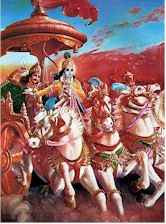There is so much lusting for loftiness. There are so many convulsions of the ambitions. There are numerous ways to be crooked, deceptive, corrupt, treacherous, perfidious and all this and more for a menial living. Alas! This coarsely malignant greed is misunderstood as courage in this corporate world. The true courage really is, to be out of this rabble, from all those bawlers and scribe-blowflies, from the trader-stench, the ambition-fidgeting, the bad breath. It doesn’t take courage to be successful. It takes courage to be ourselves, to be unambitious, to smile at our defeat, to accept ourselves, to appreciate and acknowledge others, to commit mistakes, to surrender and to move on with an indifference to success and failure. It is fear that creates ambition, success, strength, power, aggression etc.

A sannyasin by the name of Dandani existed in the days when Alexander was invading India. Alexander had be requested by his friends to bring a sannyasin when he returned from India..
They said, “Bring a sannyasin. You will bring many things but don't forget to bring a sannyasin; we would like to see the phenomenon of sannyas, what it is, what exactly a sannyasin is”
Alexander was so engaged in war and struggle and fight that he almost forgot about it, but when he was going back, just on the boundary of India, he suddenly remembered. He was leaving the last village so he asked his soldiers to go into the village and inquire if there was a Sannyasin around there somewhere. By accident Dandani was there in the village, by the riverside.
The villagers told, “You have asked at the right time and you have come at the right time. There are many sannyasins but a real sannyasin is always rare, but he is here now. You can have darshan, you can go and visit him.”
Alexander laughed and said, “I'm not here to have darshan, my soldiers will go and fetch him. I will take him back to my capital, to my country.”
The villagers said, “It won't be so easy.”
Alexander could not believe it -- what difficulty could there be? He had conquered emperors, great kings, so with a beggar, a sannyasin, what difficulty could there be? His soldiers went to see Dandani who was standing naked on the bank of the river.
They said, “Alexander, the Great, invites you to accompany him to his country. All comforts will be provided, whatsoever you need, will be provided. You will be a royal guest.”
The naked fakir laughed and said, “You go and tell your master that a man who calls himself great cannot be great. And nobody can take me anywhere -- a sannyasin moves like a cloud, in total freedom. I am not enslaved to anybody.”
They said. “You must have heard about Alexander, he is a dangerous man. If you say no to him, he won’t listen, he will simply cut your head off.”
The sannyasin said, “You had better bring your master here, maybe he can understand what I am saying”
The soldiers went back and told Alexander, “He is a rare man, luminous; there is something of the unknown around him. He is naked, but you don't feel in his presence that he is naked -- later on you remember. He is so powerful that in his presence you simply forget the whole world. He is magnetic, and a great silence surrounds him and the whole area feels as if it is delighting in the man. He is worth seeing, but there seems to be trouble ahead for him, the poor man, because he says that nobody can take him anywhere, that he is nobody's slave”
Alexander came to see him with a naked sword in his hand.
The sannyasin laughed and said, “Put down your sword, it is useless here. Put it back in the sheath, it is useless here because you can cut only my body, and that I left long ago. Your sword cannot cut me, so put it back, don't be childish.”
And it is said that that was the first time that Alexander followed somebody else's order; just because of the very presence of the man he couldn't remember who he was.
Dandani had actually said, “This is my head, you can cut it off. When the head falls, you will see it falling on the sand and I will also see it falling on the sand, because I am not my body. I am a witness.”
He put his sword back in the sheath and said, “I have never come across such a beautiful man.”
Alexander had to report to his friends saying, “There were sannyasins that I could have brought but they were not sannyasins. Then, I came across a man who was really something rare, and you have heard rightly, this flower is rare, but nobody can force him, because he is not afraid of death. When a person is not afraid of death how can you force him to do anything?”
“It is difficult to kill a man who is ready to die, it is meaningless to kill him. You can kill a person who fights, then there is some meaning in killing, but you can't kill a man who is ready and who is saying: This is my head, you can cut it off.”
Whom do you think is courageous? Alexander or Dandani?




